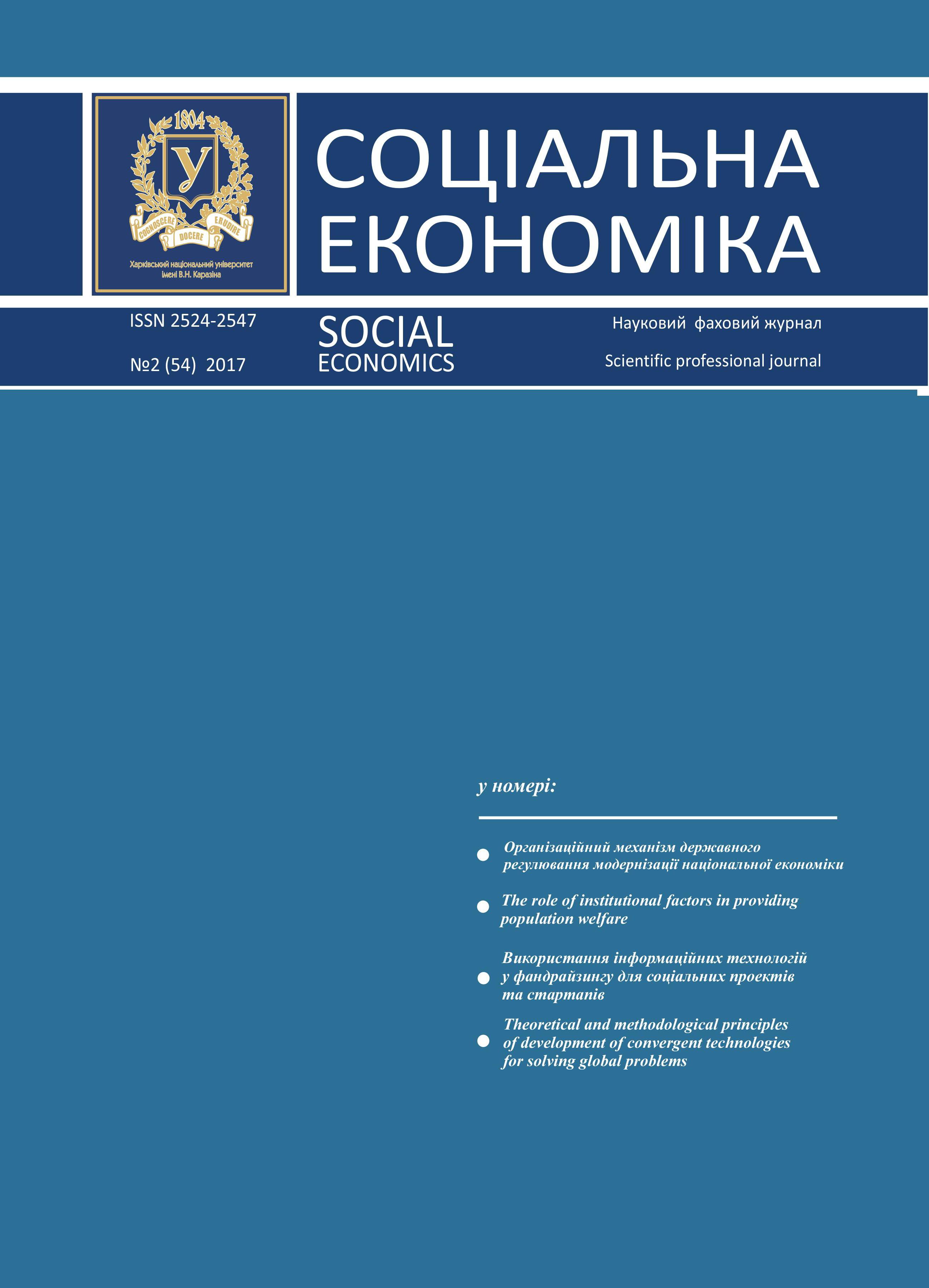DATABASES OF INTERMEDIARY ORGANIZATIONS AS A UNIFIED SOURCE OF STATISTICAL INFORMATION
Abstract
It has been determined that intergovernmental organizations (IGOs) play a key role in the international system, in the process of globalization they are gaining increasing importance. It has been pointed out that in recent decades there has been a large number of intergovernmental organizations that focus on diverse areas such as economics, education, culture, security, health and the environment, political science, and many others. Detailed information on intergovernmental organizations from 300 countries and territories, including intergovernmental and international non-governmental organizations (INGOs), contains the Yearbook of International Organizations, the Yearbook of International Organizations. It has been determined that most of the IGOs were created for economic purposes, namely, regulation of trade, financial markets and development projects. Based on the data of the Yearbook of international organizations, the distribution of the number of IGOs by types (B, C, D, E, F and G) and the main interests (security, economy, health and environment) are analyzed. It is proved that the number of IGOs, which are mainly focused on economic activity, is the largest in all types of organizations. It is indicated that in recent years, intergovernmental organizations have implemented the latest concepts of storage and analysis of statistical information in the form of databases that use innovative, promising technical software tools for their implementation. The available information resources of intergovernmental organizations are generalized and systematized, the main components of selected statistical databases are described.
Downloads
References
2. Erturk, E. (2015) Intergovernmental Organizations (IGOS) and Their Roles and Activities in Security, Economy, Health, and Environment. The Journal of International Social Research.
3. Eurostat Database / Eurostat. European Union. Retrieved from http://ec.europa.eu/eurostat/data/database
4. Guide to Measuring the Information Society (2005) / Union of International Associations Retrieved from http://www.oecd.org/dataoecd/41/12/36177203.pdf
5. Guidelines for Collecting and Interpreting Innovation Data. Third edition. Oslo Manual. OECD (2005) / European Communities. Retrieved from http://www.oecd-ilibrary.org/docserver/download/9205111e.pdf?expires=1519316873&id=id&accname=guest&checksum=1869B0FF06B7BD4957CDEF23E2F25C3C.
6. International Energy Agency Statistics / International Energy Agency Retrieved from http://www.iea.org/statistics/.
7. International Information: Documents, Publications, and Electronic Information of Inter-national Governmental Organizations (2001). Volume 2 / Ed. by Peter I. Hajnal. Englewood, CO: Libraries Unlimited.
8. International Monetary Fund Database / International Monetary Fund. Retrieved from http://www.imf.org/en/Data.
9. Information technology – Vocabulary (2015). ISO/IEC 2382:2015, ISO.
10. Langhorne, R. (2006) The Essentials of Global Politics. London. Hodder Arnold.
11. Larson, B. (2008) Delivering Business Intelligence with Microsoft SQL Server. McGraw-Hill Osborne Media; 2 edition.
12. Mingst, K. A., Arreguín-Toft, I. M. (2013) Essentials of International Relations : W. W. Norton & Company; 6 edition.
13. Morrison, A. M., Mann, B.J. (2004) International Government Information and Country Information: A Subject Guide. Westport, CT: Greenwood Publishing Group.
14. O’Brien, R., Williams, M. (2016) Global political economy: evolution and dynamics : Palgrave; 5th ed.
15. Statistics and databases ILOSTAT / ILO. Retrieved from http://www.ilo.org/global/statistics-and-databases/lang--en/index.htm.
16. The UNESCO Institute for Statistics (UIS) / UNESCO. Retrieved from http://uis.unesco.org/.
17. The Yearbook of International Organizations / Union of International Associations. Retrieved from https://uia.org/yearbook.
18. The World Trade Organization (WTO) / World Trade Organization. Retrieved from http://stat.wto.org/Home/WSDBHome.aspx?Language=E.
19. United Nations Database / United Nation. Retrieved from http://data.un.org/.
20. UNCTADstat / UNCTAD. Retrieved from http://unctadstat.unctad.org/EN/Index.html.
21. Williams, R. V. (1998) The Information Systems of International Inter-Governmental Organizations: A Reference Guide. Stamford, CT: Ablex Publishing.
22. World Bank Open Data / World Bank. Retrieved from http://data.worldbank.org/.




